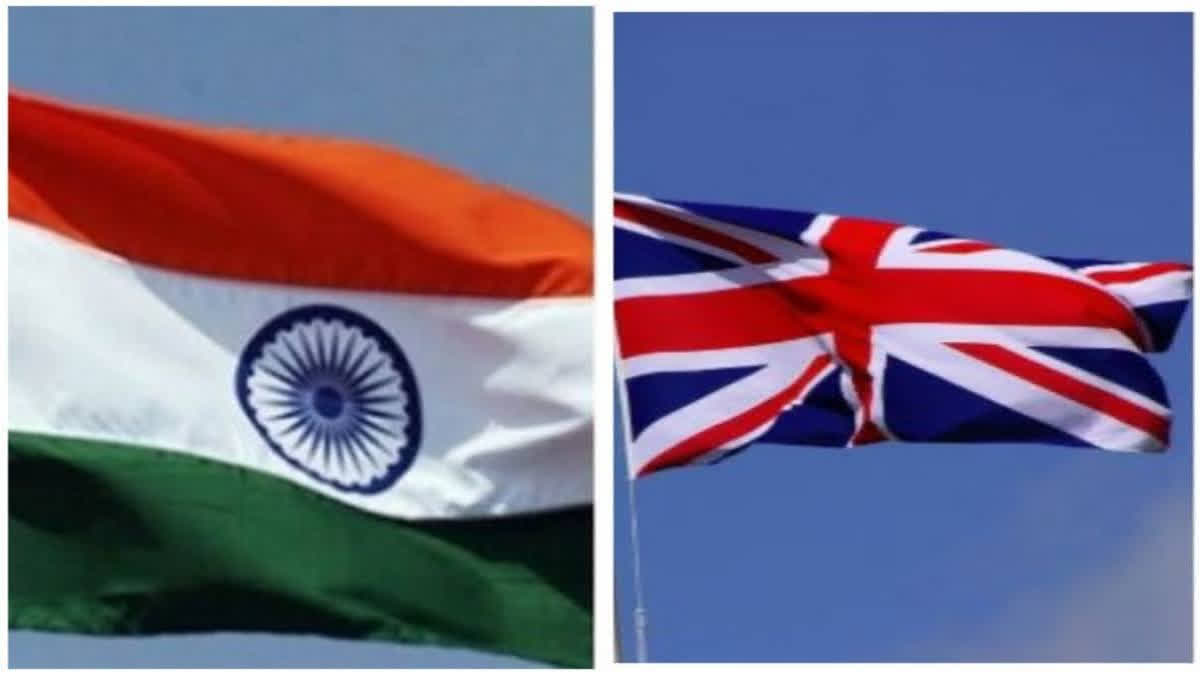New Delhi:After a gap of over eight months, India and the UK will resume negotiations for a proposed free trade agreement (FTA) here from February 24, an official said.
UK's Secretary of State for Business and Trade Jonathan Reynolds will be here for the resumption of the talks. He will hold a bilateral meeting with Commerce and Industry Minister Piyush Goyal, the official said.
The India-UK FTA negotiations were launched on January 13, 2022.
A total of 13 rounds of negotiations have been held till December 2023. The 14th round, which began on January 10, 2024, was underway when negotiations were paused by the UK side in May 2024 due to elections in that country.
The talks would resume the discussions from the progress achieved previously and seek to bridge the gaps for expeditiously closing the trade deal, the official added.
The agreement is aimed at boosting bilateral trade and investments.
In such pacts, two countries either eliminate or significantly reduce customs duties on maximum goods traded between them. They also ease norms for promoting trade in services and bilateral investments.
The Indian industry is demanding greater access for its skilled professionals from sectors like IT and healthcare in the UK market, besides market access for several goods at nil customs duty.
On the other hand, the UK is seeking a significant cut in import duties on goods such as scotch whiskey, electric vehicles, lamb meat, chocolates and certain confectionary items.
Britain is also looking for more opportunities for UK services in Indian markets in segments like telecommunications, legal and financial services, including banking and insurance.
The talks for the agreement may get an impetus as Finance Minister Nirmala Sitharaman has proposed to raise the foreign investment limit to 100 per cent in the insurance sector as part of new-generation financial sector reforms.
Presenting the Union Budget 2025-26, the Finance Minister had said that the foreign direct investment (FDI) limit for the insurance sector will be raised from 74 per cent to 100 per cent.
The two countries are also negotiating a bilateral investment treaty (BIT).
There are 26 chapters in the agreement, which includes goods, services, investments and intellectual property rights.
The bilateral trade between India and the UK increased to USD 21.34 billion in 2023-24 from USD 20.36 billion in 2022-23. The average duty on goods imported from India into the UK is 4.2 per cent.
According to economic think tank GTRI, items including textiles, apparel (shirts, trousers, women's dresses, bed linen), footwear, carpets, cars, marine products, grapes, and mangoes would benefit from the pact as these products face relatively low to moderate tariffs in the UK.
Duties on yarn and fabric are 4 per cent, while tariffs on shirts, trousers, women's dresses, and bed linen range from 10 per cent to 12 per cent. Similarly, handbags and trunk cases attract 8 per cent tariffs, and levies on footwear vary from 4 per cent to 16 per cent.
It has been said that UK exporters would gain immediately after India eliminates high tariffs on most British products.
For example, the tariff on cars is 100 per cent and on Scotch whisky and wines, it is 150 per cent. The simple average tariff in India on goods imported from the UK is 14.6 per cent.
The UK exported USD 2.7 billion worth of precious metals; and USD 374 million worth of Scotch and other alcohol into India during 2022-23.
The United Kingdom is the sixth largest investor in India. The country has received USD 35.3 billion in FDI between April 2000 and September 2024.
